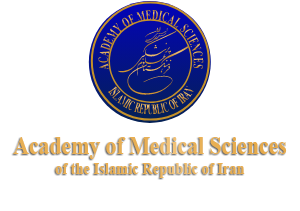Health Sciences and Nutrition Group
Strategic Objectives
1. Examining methods for the control, elimination, and eradication of endemic and prevalent communicable diseases.
2. Supporting the prevention of major non-communicable diseases through primary and secondary prevention.
3. Supporting the establishment of a comprehensive national care system for both communicable and non-communicable diseases.
4. Developing programs to combat emerging and re-emerging diseases.
5. Strengthening intra- and inter-sectoral collaboration.
6. Mobilizing community engagement in the prevention of communicable and non-communicable diseases.
7. Developing health promotion programs and community empowerment initiatives.
8. Collaborating in establishing urban primary health care (UPHC) delivery systems.
9. Establishing the most appropriate healthcare delivery model for metropolitan areas.
10. Promoting applied research aimed at resolving the country’s public health challenges.
11. Building capacity for evidence-informed health policymaking.
Strategies to Achieve the Strategic Objectives
1. Strategies for the control, elimination, and eradication of endemic and prevalent communicable diseases
1.1 Technical collaboration to strengthen immunization and the measles surveillance system for measles elimination and eradication.
1.2 Technical collaboration to eliminate congenital rubella syndrome through expansion of measles–rubella (MR/MMR) vaccination coverage and strengthening congenital rubella syndrome surveillance.
1.3 Technical collaboration to achieve malaria elimination in the southeastern provinces.
1.4 Technical collaboration for the control of zoonotic diseases (leishmaniasis, brucellosis, and Crimean–Congo hemorrhagic fever) by enhancing cooperation with the Veterinary Organization.
2. Support for prevention of major non-communicable diseases (primary and secondary prevention)
2.1 Technical collaboration to develop prevention programs addressing risk factors, including tobacco control, promotion of regular physical activity, and promotion of healthy diets.
2.2 Strengthening coordination and intersectoral collaboration among relevant ministries (Ministry of Health, Ministry of Commerce, Ministry of Industry, Ministry of Agriculture [Jihad], Ministry of Education).
2.3 Supporting expanding education and public information on major non-communicable diseases and their risk factors through mass media, particularly national radio and television.
3. Support for establishing a comprehensive national care system for communicable and non-communicable diseases
3.1 Propsing on out frame for a comprehensive communicable-disease care system by building upon the existing polio, malaria, and cholera surveillance and care frameworks.
3.2 Advising for integrating communicable disease programs with non-communicable disease care to create a unified national comprehensive care system.
4. Development of programs to combat emerging and re-emerging diseases through:
4.1 Promoting education and awareness programs on HIV/AIDS and viral hepatitis.
4.2 Securing the participation and cooperation of the Ministry of Agriculture, particularly the Veterinary Organization, with the Ministry of Health.
5. Strengthening intra- and inter-sectoral cooperation
5.1 Providing support to enhance coordination and collaboration within the Ministry of Health.
5.2 Assisting in establishing coordination and cooperation between the Ministry of Health and other health-related development sectors.
6. Mobilizing Community Participation in the Prevention of Communicable and Non-communicable Diseases through:
6.1 Reforming and strengthening the role of national broadcasting (radio and television) in education and public information.
6.2 Engaging with relevant scientific and professional associations concerned with communicable and non-communicable diseases.
7. Developing Health Promotion Programs and Community Empowerment through:
7.1 Promoting educational and awareness initiatives on the prevention of communicable and non-communicable diseases.
7.2 Providing technical assistance for the formulation of appropriate legislation for disease prevention.
7.3 Assisting in creating enabling environments for the prevention of risk factors and in fostering population-level lifestyle changes.
8. Collaboration to Establish Urban Primary Health Care (UPHC) Delivery Systems
8.1 Assessing the effectiveness of ongoing projects related to urban health service delivery models.
8.2 Facilitating agreements and cooperation between project implementers and the relevant officials within the Ministry of Health.
8.3 Selecting the most appropriate project for piloting and scaling up following a successful pilot.
9. Provision of the Most Appropriate Healthcare Delivery Model for Metropolitan Areas
9.1 Developing a metropolitan healthcare delivery framework aligned with broader urban service delivery systems.
10. Development of Applied Research to Address the Country’s Health Problems
10.1 Providing technical assistance to support research projects designed and implemented to respond to national health challenges.
11. Capacity Building for Evidence-Informed Health Policymaking
11.1 Providing technical assistance and capacity building to strengthen collaboration between researchers and policymakers.
11.2 Providing technical assistance and capacity building to support policymaking based on scientific evidence.












